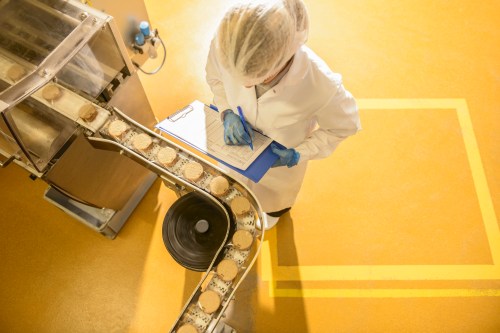In the wellness-obsessed world we live in, people are forever looking for new ways to hack their health. Lately, liver cleanses have been surging in popularity.
Experts in This Article
“Liver detoxes (or cleanses or flushes) are solutions promoted predominantly by ‘wellness experts’ and commercial companies, to improve liver health,” says Arpan Patel, MD, gastroenterologist and American Gastroenterological Association spokesperson.
Notice how he didn’t say doctors recommend them? There’s a reason for that. Keep reading to uncover the side effects of a liver detox and why you may want to think twice before hopping on the wellness trend.
What is a liver detox?
There’s no denying the liver is a hardworking organ. Indeed,its job description is a long one: It helps us break down and digest food, stores essential vitamins and minerals, and removes toxins from the system, among (many) other things, according to Johns Hopkins Medicine.
So it’s no wonder “liver cleanses” have become so popular in holistic wellness circles—they’re believed to improve this vitally important organ’s function and, in turn, our overall health and well-being.
“’Removing’ or ‘flushing’ toxins out of the liver is the main way most detoxes—ranging from specific diets to supplements—have been explained to work,” Dr. Patel says. Again, notice his wording—semantics matter. This is how liver detoxes are explained to work, not the way they’ve been proven to work.
Are liver detoxes safe?
It depends on the type. Natural liver detoxes (which we’ll discuss further in a bit) are typically safe; trendy, over-the-counter liver detox supplements are not—or rather, they’re not proven to be.
“There is very limited evidence to support the use of liver detoxes for routine liver health,” Dr. Patel says. “Most medical professionals in hepatology, backed by professional society guidelines, would recommend that such detoxes either have no effect on liver health or may even harm the liver. Liver injury from supplements is well-documented and largely related to the lack of regulation of the supplement industry in the United States, which has a net global worth of over $100 billion.”
In other words, the side effects of a liver detox could range from “no effect” (i.e., a waste of money) to liver damage. Some popular compounds linked to liver injury that can be found in liver detoxes include the following, Dr. Patel says: green tea extract, flavocoxid, and OxyELITE Pro.
While advertised liver supplements may seem like a great idea, they’re often actually just a money-making scheme. “The Food and Drug Administration explicitly states on their website: ‘If a supplement promises a cure or quick fix for a health problem, it is probably too good to be true,’” Dr. Patel points out.
Can liver cleanses protect you from developing liver disease?
The short answer is no.
“There is no data to suggest that liver cleanses or liver detoxes have any positive impact on the liver,” says Pratima Dibba, MD, a board-certified gastroenterologist with Medical Offices of Manhattan and contributor to www.LabFinder.com. “In fact, some liver cleanses can cause drug-induced liver injury.”
Suffice to say, if your goal is to strengthen and protect your liver, liver detoxes may very well be what you want to avoid.
“If a supplement promises a cure or quick fix for a health problem, it is probably too good to be true.” Arpan Patel, MD, gastroenterologist and internist
How to support your liver health
If you’re concerned about your liver health, you have a few options to consider beyond ill-advised liver detoxes.
The best and healthiest way to give your liver some love is the good old-fashioned way: living a healthy lifestyle. It’s not about doing a super intense, one-time cleanse. The goal is to make small tweaks to your diet and lifestyle that support liver health (a “natural liver detox,” if you will).
1. Get your liver checked. “Ask your primary care provider about checking your liver enzymes,” Dr. Patel says. “Important blood tests include aspartate aminotransferase (AST), alanine aminotransferase (ALT), alkaline phosphatase, total bilirubin, and platelet count, though others may be ordered. Your provider may even consider additional tests like an abdominal ultrasound or a transient elastography test, which are non-invasive imaging studies that can better characterize liver damage for those at highest risk.”
Undergoing these tests and scans will allow your doctor to get a better sense of whether or not you need to be concerned about your liver health in the first place.
2. Determine your risk for common liver conditions. As with any major health concern, it helps to consider your family history, as well as other risk factors for liver conditions.
“If you have signs of liver damage, your doctors may consider common causes, including alcohol-associated liver disease (ALD), metabolic dysfunction associated steatotic liver disease (MASLD), hepatitis B, and hepatitis C,” Dr. Patel says, adding: “Hepatitis B and hepatitis C, which are both preventable and treatable conditions, are now recommended to be screened in all adults over the age of 18 at least once in their lifetime, independent of whether they have liver disease.”
3. Consider lifestyle changes that promote liver health if you are at risk or have certain liver conditions. “If you have certain risk factors for developing liver disease (excessive alcohol use, obesity, diabetes, high blood pressure, high cholesterol) or have liver injury, this is an opportunity to make changes in these risk factors so that your liver does not get further injured,” Dr. Patel says.
In other words, you may want to cut back on the amount of alcohol you drink and work with your doctor to devise a treatment plan for conditions like diabetes, high blood pressure, or obesity.
4. Eat liver-friendly foods. Dr. Patel notes that the Mediterranean diet has been linked to a reduced risk of fat forming in the liver (which could potentially damage your liver and lead to disease). The Med diet emphasizes plant-based foods (think: fruit, veggies, whole grains) and healthy fats including olive oil, nuts, and avocado. It’s important to note that the Mediterranean diet is not a weight-loss or “quick fix” diet—it’s meant to be a lifelong, healthy eating plan.
If you need help adopting this eating style, consider seeking out the help of a registered dietitian.
5. Check your medications.Dr. Patel shares that LiverTox is a free resource that lets users check whether a medication has damaging liver effects. Importantly, though, you should check with your doctor before you stop taking any prescribed medications.
FAQ
Is there a difference between a liver detox and a liver cleanse?
“Commercially, a detox is meant to rid the liver of toxins at a molecular level and may include medications,” Dr. Dibba says. “A cleanse is meant to use healthy foods for the same purpose.”
How often should you get a liver cleanse?
If by liver cleanse you mean taking supplements meant to “detox” or “cleanse” your liver, the answer is short and sweet: Never.
The best thing you can do for your liver is to eat health foods and strive to live a healthy lifestyle—both support your liver health and help this hardworking organ do its job.
The takeaway
Taking over-the-counter liver detox supplements generally isn’t advised, but “natural liver cleanses” (meaning: eating healthy foods, limiting alcohol, and managing conditions that may negatively affect your liver health) are always a good idea.
You may also consider booking an appointment with your doctor to determine the state of your liver health and to work together on a plan to optimize your diet and lifestyle habits to support your liver.
—reviewed by Jennifer Gilbert, MD, MPH
Sign Up for Our Daily Newsletter
Get all the latest in wellness, trends, food, fitness, beauty, and more delivered right to your inbox.
Got it, you've been added to our email list.










